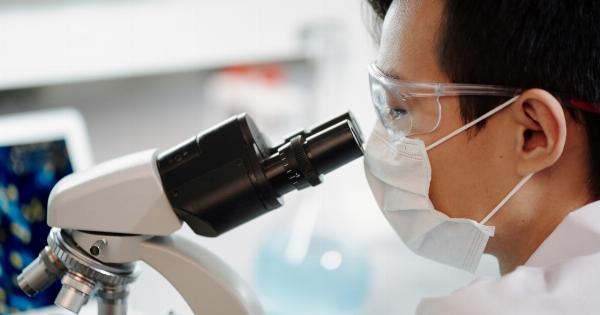Pancreatic cancer is a deadly disease that claims thousands of lives annually. The early detection of pancreatic cancer is vital for a better prognosis, but it is often challenging.
Unfortunately, many patients with pancreatic cancer are diagnosed at an advanced stage when the treatment is limited. However, recent studies have identified that dentists can play a vital role in identifying signs of pancreatic cancer that may help in the early detection of the disease. Here are two clues dentists can use to detect pancreatic cancer:.
1. Yellowing of the Eyes and Skin
One of the early clues of pancreatic cancer is the yellowing of the eyes and skin, also known as jaundice. This yellowing occurs when there is a buildup of bilirubin in the blood because the liver or gallbladder is not functioning correctly.
Pancreatic cancer can cause a blockage in the bile duct that leads to the liver, which results in jaundice. It often starts in the eyes and then spreads to the skin.
Dentists can easily spot jaundice by looking at the patient’s eyes and the inside of the mouth. They can check for yellowing of the sclera, which is the white part of the eye, tongue, and the soft tissues in the mouth.
Jaundice is not always indicative of pancreatic cancer, but if a dentist detects it in a patient, they should refer them to a specialist for further evaluation.
2. Inflammation of the Gums
Inflammation of the gums or gingivitis is a common dental problem that is caused by the buildup of bacteria in the mouth. However, gingivitis can also be a warning sign of pancreatic cancer.
A recent study found a link between gingivitis, or gum disease, and pancreatic cancer. Researchers found that patients with gum disease had a 63% higher risk of developing pancreatic cancer than those without gum disease.
Dentists can detect gingivitis during a routine examination. Signs of gingivitis include swollen, tender, or bleeding gums.
If a dentist detects gingivitis in a patient, they should inform them of the potential link to pancreatic cancer and encourage them to book an appointment with their primary physician for further evaluation.
Conclusion
Dentists can play an essential role in the early detection of pancreatic cancer. By identifying the two clues discussed above, they have the potential to save lives.
Dental check-ups are not just about taking care of the teeth and gums but also about detecting other serious medical conditions. Dentists should encourage patients to report any abnormalities in their mouth, and refer them to appropriate medical professionals for further evaluation.
Early detection of pancreatic cancer is crucial, and dentists can help play a critical role by providing regular dental examinations and health assessments.


























